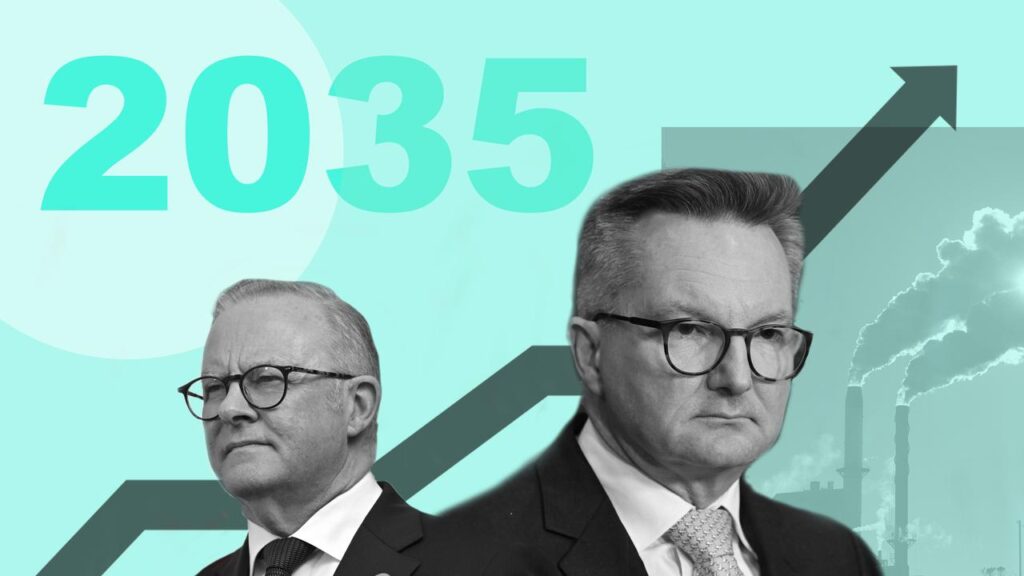PM spruiks ‘sweet spot’ climate target, rejects critics
Poppy Johnston, Tess Ikonomou and Andrew Brown |

Australia’s pledge to cut emissions by more than 62 per cent but up to 70 per cent hits the “sweet spot” between credibility and ambition, the prime minister has declared.
Unveiling the long-awaited 2035 climate targets, Anthony Albanese described the commitment as responsible and “backed by a practical plan to get there”.
The biggest cuts to greenhouse gas emissions would occur in transport, energy and industry, he said on Thursday.
The roadmap included a $5 billion carve out from an existing fund for decarbonising heavy industry.
The Safeguard Mechanism, aimed at big polluters, and the New Vehicle Efficiency Standard, which targets car emissions, could both be tightened and are subject to review.
Thursday’s commitment builds on Australia’s existing 2030 target to cut emissions by 43 per cent on 2005 levels.
Interim targets are a requirement under the main international climate pact and serve as a stepping stone on the way to net zero by 2050.

Mr Albanese pre-empted critiques of the 62-70 per cent range.
“There will be criticism from some who say it’s too high, there’s some who will say that it’s too low,” Mr Albanese told reporters in Sydney.
“We’ve got the sweet spot.”
The federal opposition, which has been struggling to maintain internal unity as key members lobby to quit net zero entirely, was unimpressed by the announcement.
Opposition leader Sussan Ley said it failed on cost and credibility.
Environmental groups were gunning for at least a 75 per cent emissions reduction and were broadly disappointed by the range delivered, with the Australian Conservation Foundation describing the pledge as “timid”.
Greens leader Larissa Waters slammed the target as a “betrayal of the community” and urged the Labor government to reconsider.
The Business Council of Australia, representing big corporates, welcomed the target but stressed even the bottom of the range would require a sizeable injection of capital.
Under the Paris Agreement signed a decade ago, members must increase their emissions reduction targets every five years and cannot water them down.

Nations that signed up must submit their new targets by the end of September.
Treasury modelling released alongside the 2035 target found Australia’s economy would be $2.2 trillion bigger were the nation to pursue an orderly transition to net zero, with the opportunities even bigger if it leaned in to green export industries.
“An orderly transition to net zero is a golden economic opportunity for Australia,” Treasurer Jim Chalmers said.
The announcement of the climate target follows the release of the first National Climate Risk Assessment, which laid out a catastrophic vision of Australia’s future if global warming goes unchecked.

Climate Change Authority chair Matt Kean said he hoped Australia would be able to “over-achieve” on the target.
“Our range positions Australia as a global leader on climate ambition. In fact, we are presenting a higher ambition than most other advanced economies,” he said.
“It’s ambitious, but it’s absolutely feasible.”
The 2035 targets were based on the independent authority’s final advice.
AAP